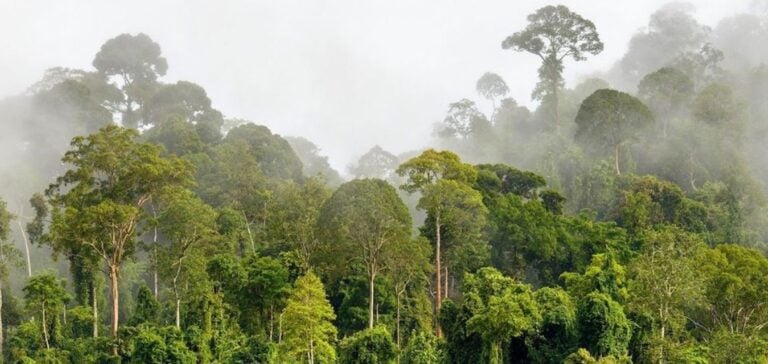Despite its vast forest resources, Malaysia is making slow progress in developing natural carbon projects. Market players express concern about fragmented state policies that expose these projects to significant regulatory and reputational risks. Comprising 11 states to the west on the Malay Peninsula and two to the east on the island of Borneo, Federal Malaysia is developing national economic plans and legislative frameworks. However, for nature-based projects, state governments set local rules for land administration, forest management and agriculture.
Regulatory frameworks and carbon projects
Since 2021, the federal government has published non-binding general guidelines for the development of the voluntary carbon market, defining the types of projects feasible in the country, the stakeholders involved and the requirements for implementing and reporting emission reductions. Western states such as Terengganu, Johor and Kelantan plan to develop policies within the federal government framework. In contrast, Sarawak and Sabah in the east have formulated their own laws to accelerate project development. Proactive initiatives by the Sarawak and Sabah governments have effectively accelerated the development of nature-based projects in their territories. The Kuamut forest conservation project in Sabah, registered with Verra, has already started generating carbon credits. Meanwhile, the Marudi forest conservation project in Sarawak, also registered with Verra, is marked as “under development”. However, these initiatives have also created policy inconsistencies across the country, notably with regard to carbon licensing requirements, benefit-sharing conditions between stakeholders and governments, and measures to protect indigenous communities.
Different approaches by States
These inconsistencies, if not properly managed, could hamper the delivery of carbon credits and damage the reputation of buyers. Comparing the two pilot states, Sarawak has relatively detailed regulations in place, but the sophisticated rules also pose greater challenges and lengthen project development times. Sabah’s simpler regulations speed up projects, but leave grey areas that can trigger disputes. Sarawak is considered the most advanced among Malaysian states in terms of carbon policies, according to the VCM Handbook published in October 2023 by Bursa Malaysia, which hosts the national carbon exchange. Project proponents must first obtain a carbon study permit to conduct a feasibility study, then submit detailed plans for project implementation. Then they have to apply for a carbon license to start trading carbon credits. Sarawak has also listed the fees and royalties to be paid, and requires project developers to set aside part of the carbon credits to meet the state’s climate targets.
Effects of inconsistencies
A detailed regulatory framework, such as Sarawak’s, helps prevent disputes, but can slow down the process. On the other hand, the simplicity of Sabah’s regulations facilitates rapid implementation, but leaves uncertainties that can lead to disputes. Projects already in place in Sabah before all the regulations were established are seeing their carbon credits and returns on investment become uncertain, which poses a problem. Regulatory differences between Malaysian states pose challenges for project developers and investors. A local project developer pointed out that the existence of projects prior to the establishment of clear regulations makes the volume of tradable carbon credits and returns on investment uncertain.
Impact on aboriginal communities
Mitigating negative impacts on indigenous communities is another crucial challenge for the development of the Malaysian carbon market. Indigenous groups make up more than half the population of Sarawak and Sabah, with many living in forest reserves. Carbon projects have already been accused of violating indigenous rights. In December 2023, the UN Human Rights Council questioned the government of Sabah over an agreement with Singaporean company Hoch Standard, signed without the consent of indigenous communities, transferring the carbon rights of 2 million hectares of local forests.
Special cases and testimonials
A Save Rivers NGO report published in May 2024 criticizes the Jalin forest carbon management project in Sarawak, accusing the developers of forcing Penan communities to sign documents and denying them access to their forests. According to national guidelines, carbon project developers must consult affected indigenous stakeholders. At a webinar in May, Permian Malaysia, developer of the Kuamut pilot project in Sabah, claimed that their project areas are for commercial use only, with no indigenous communities. A SaraCarbon official indicated that they bypassed certain areas inhabited by indigenous people to develop the Marudi project. A Singapore-based carbon trader points out that foreign investors perceive Malaysian carbon credits as a whole, with no distinction between states. Any shortcomings therefore affect the overall image of Malaysian carbon credits. Another local project developer adds that credits would have to be earmarked to meet state climate targets, which could compromise the amount of credits available for trade.
Reputation and reliability of carbon credits
The reliability and reputation of Malaysian carbon credits depend on harmonized regulations and adequate protection of the rights of local communities. Investors need clear guarantees before committing to carbon projects in Malaysia. The sustainable development of these projects requires close collaboration between federal and state governments, as well as the active involvement of indigenous communities.
The development of natural carbon projects in Malaysia is hampered by inconsistent policies and risks for indigenous communities. To succeed, the country must harmonize its regulations and ensure adequate protection of the rights of local populations, while offering clear guarantees to investors.






















